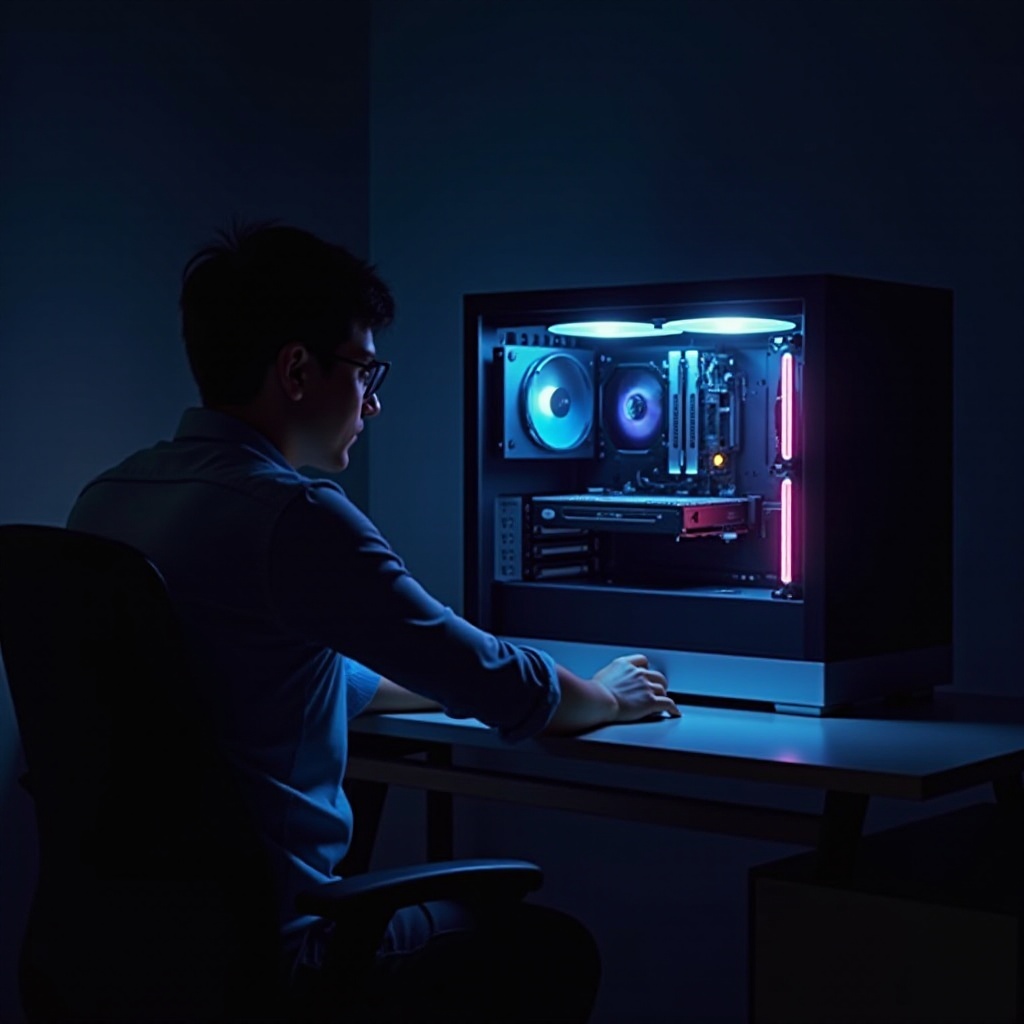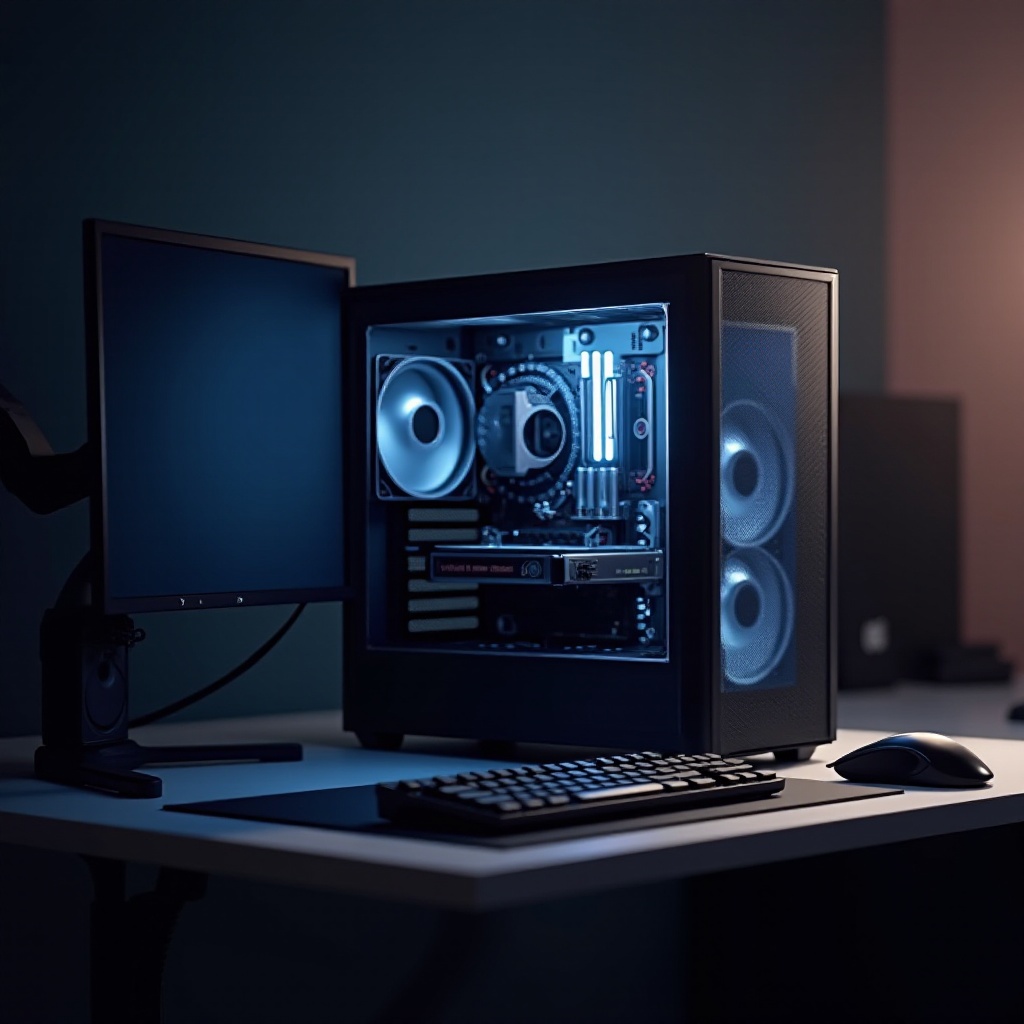Introduction
Selecting the right prebuilt gaming PC can dramatically enhance your gaming experience. A well-chosen system offers the convenience and performance needed to dive right into your favorite games with minimal setup. This guide provides insights into making informed decisions when selecting a prebuilt gaming PC, covering aspects such as gaming requirements, component selection, and budgeting.

Assessing Your Gaming Requirements
Understanding the Types of Games You Play
Identifying the kinds of games you play is the first step. Different genres require different hardware capabilities. For instance, first-person shooters often require superior graphics and processing power, whereas strategy games might require more robust CPUs.
Determining Performance Needs
Once you know your gaming preferences, you should decide on the performance level you require. Casual gamers may find satisfaction with an entry-level PC, while competitive gamers might look for systems with high-end specifications for superior gameplay.
Planning for Future Gaming Demands
Gaming technology is continually evolving. Ensure that your chosen PC can handle expected future advancements in gaming technology. Opt for a system that allows easy upgrades, letting you keep up with the latest technology without replacing your entire setup.

Core Components to Consider
CPU: Finding the Right Processor for Your Needs
The CPU has a significant impact on your gaming experience. Modern games benefit from processors with multiple cores. For mainstream gaming, an Intel i5 or AMD Ryzen 5 is a solid choice. Power users might prefer an i7 or Ryzen 7 for higher performance.
GPU: Ensuring High-Quality Graphics Performance
The GPU is crucial for rendering game images and animations. A powerful GPU ensures smooth gameplay and sharp graphics. Look for models like the NVIDIA GeForce RTX or AMD Radeon RX series, which deliver high frame rates and advanced graphics.
RAM and Storage: Balancing Speed and Capacity
A minimum of 16GB RAM is recommended for most gaming scenarios. This capacity allows for efficient multitasking and smooth transitions between applications. For storage, a mix of SSD for speedy boot-ups and HDD for more extensive game libraries is ideal.

Evaluating Build Quality and Features
Case Design and Aesthetic Options
The PC’s case design affects its aesthetics and cooling capabilities. Choose a case that complements your style and offers good airflow. Many gamers prefer cases with transparent panels and customizable RGB lighting for visual appeal.
Cooling Systems: Keeping Your PC Cool
Proper cooling is essential for maintaining performance during intensive gaming. Seek systems with effective air or liquid cooling solutions to manage heat and increase component longevity.
Connectivity: Ensuring Adequate Ports and Connections
Ensure that the PC provides enough USB ports and other connections for your peripherals, like keyboards, mice, and headsets. Confirm the availability of HDMI and DisplayPort connections for modern display types.
Budgeting and Financial Considerations
Setting a Realistic Budget
Establishing a budget helps to narrow down choices and prevent overspending. Allocate funds for essential extras such as a monitor or other peripherals that you might need.
Understanding Price-Performance Ratios
Research thoroughly to understand the value different systems provide within your budget. Compare the specifications, build quality, and additional features, including warranties, to assess whether you are getting a good deal.
Brand Reputation and Customer Support
Researching Trusted Brands
In 2024, brands like Dell (Alienware), ASUS, and HP (Omen) are celebrated for their quality prebuilt gaming PCs. These brands often offer good customer support and reliable products. Check recent reviews to ensure these products meet real-world expectations.
Assessing Warranty and Customer Service Options
A reliable warranty can be a critical factor. Understand what the warranty covers and for how long. Also, investigate the quality of customer service offered by the brand, as good support can be invaluable if technical issues arise.
Making Your Purchase Decision
Comparing Online and In-Store Options
Both online and in-store purchases have advantages. Online platforms offer broader selections and potentially better prices, whereas in-store purchases provide a tangible product experience. Decide based on what suits your buying style and convenience needs.
Checking Return Policies
Before finalizing a purchase, understand the seller’s return and exchange policies. These policies are essential in case the product does not meet your expectations or needs to be replaced.
Conclusion
Choosing the right prebuilt gaming PC involves careful consideration of various factors, including gaming requirements, desired components, and budget. With a comprehensive approach and understanding of these elements, you can make a confident purchase that fulfills both immediate and future gaming needs.
Frequently Asked Questions
What is the best brand for prebuilt gaming PCs in 2024?
In 2024, leading brands include Dell (Alienware), ASUS, and HP (Omen), known for their performance and reliability.
How much should I expect to spend on a high-performance gaming PC?
Expect to spend between $1,500 and $3,000 depending on specific components and features desired.
Can I upgrade components in a prebuilt gaming PC?
Yes, most prebuilt gaming PCs allow upgrades. Make sure the case has room and compatible slots for possible enhancements.
